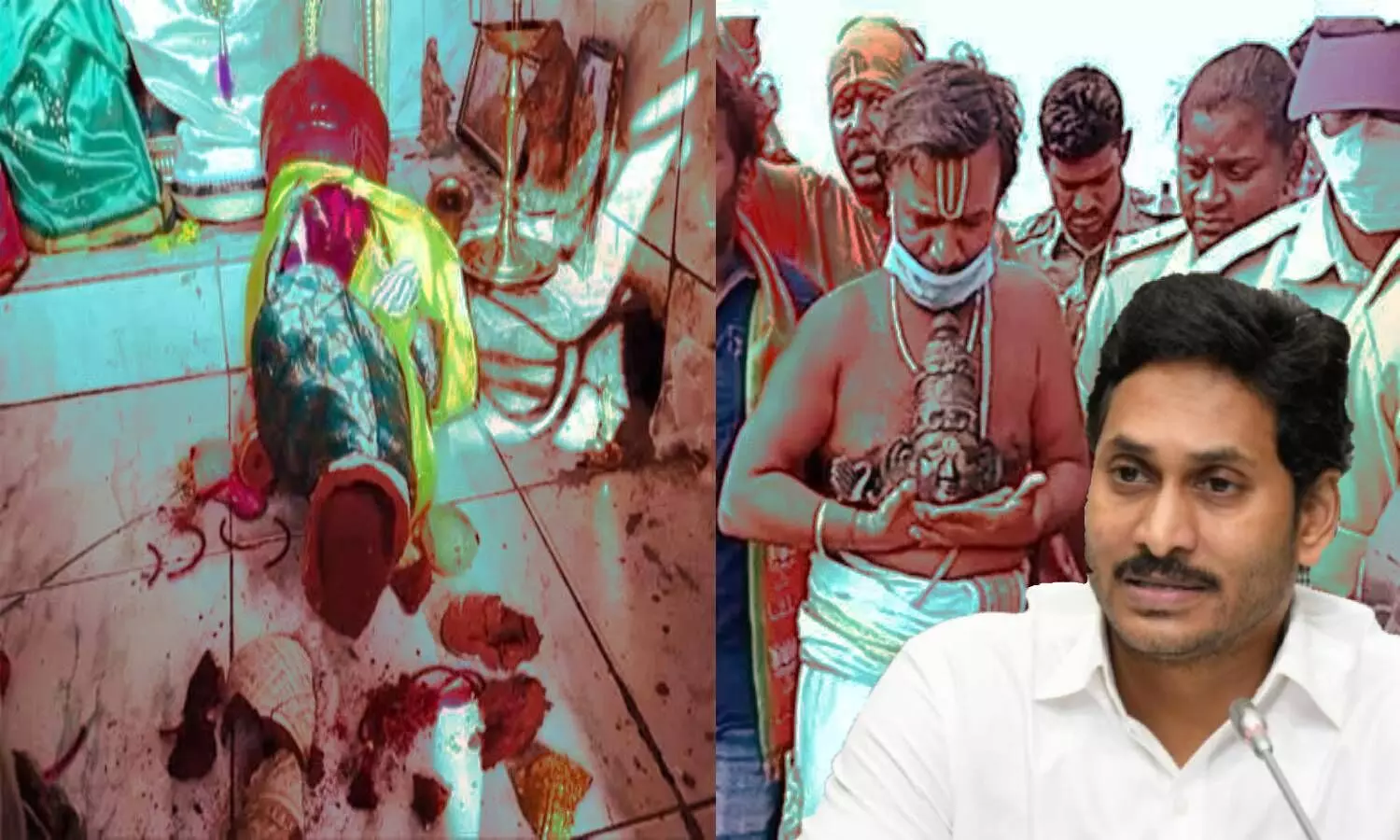Temple attacks: AP forms state and district-level communal harmony committees
By Newsmeter Network
Vijayawada: Addressing the recent desecration of idols in the state, the government decided to form district and state-level 'communal harmony committees' to promote peace while safeguarding religious sentiments. In a press release, on Thursday, the government said that in the age of misinformation and propaganda, certain political factions in Andhra Pradesh have left no stone un-turned to inflame religious sentiments by propagating communal falsehoods to garner political relevance in the state. Multiple cases of people using pictures/videos from the past to mislead the citizens, thereby creating a sense of disharmony have come to light in the recent past, it said.
The government severely condemned the attacks on places of worship belonging to any faith and said the attacks on remote temples are being done to take the attention away from the government's efforts in launching important initiatives. "The consistent pattern clearly suggests the fact that those who wish to gain from defaming the police and the government are actively orchestrating the recent attacks on temples across the state," the release said.
The state-level communal harmony committee will comprise chief secretary as its chairman, director general of police as vice-chairman and one representative each from every religious community. Other members will include the principal secretaries of Home, Endowments, Minority Welfare and GAD (political) departments.
Similarly, the district communal harmony committee will have the collector as the chairman, SP as vice-chairman and one representative each from every religious community. Rest of the members will be the assistant directors of Minorities and Endowments departments, along with the joint collector (Rythu Bharosa and Revenue).
The responsibilities of the state-level communal harmony committee will be to meet from time to time to discuss issues related to communal harmony, spreading the message that all communities are together, preparing detailed state-level Standard Operating Procedures (SOPs) for different situations that can cause communal disharmony, setting guidelines related to the security plans of all religious buildings, structures, and monuments of the state, designing a programme for increasing communal harmony, take necessary actions in all the issues discussed by the district communal harmony committees, review all the cases booked under the different sections of IPC against the culprits for disturbing communal harmony, and take up programmes in schools and colleges that inculcate the spirit of togetherness and communal harmony among children.
Similarly, the responsibilities of the district-level communal harmony committee will include ensuring appropriate action in a timely manner to any communal disturbances and restore peace and harmony, convene constituency-wise meetings regularly, carefully study the history of past disputes/clashes and prepare an action plan to deal with similar cases that may arise with them, prepare a list of sensitive and hypersensitive areas and periodically review the situation in such areas, list out disputes over lands and other issues that have the potential to trigger communal disputes/tensions and thus prepare an action plan to address them, prepare, approve and implement the security plan for all religious buildings, structures and monuments in the districts, make frequent field visits to build confidence among the community members and review all the cases, booked under the different sections of IPC against the culprits for disturbing communal harmony at the district-level.
The main objective of both these committees is to take up several confidence-building measures and send across a strong message to all communities that communal harmony is central for development, and expose and take stern action against perpetrators of crimes against religious harmony.